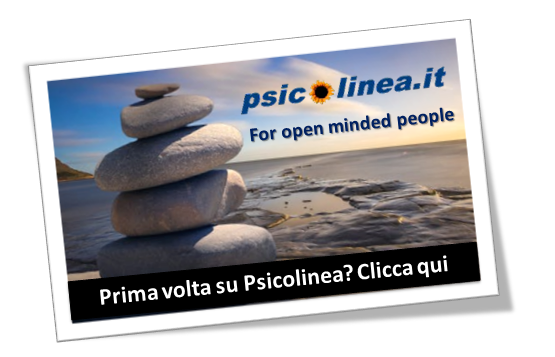Interview to Keely Kolmes on Social Media Use for Professionals
GP Many think that the traditional “mass media” have now been replaced by the new “social media”, which represent a continuation and not an alternative to the top-down political information and consumer shopping orientation. What do you think about it?
KK I cannot offer an opinion regarding consumer shopping orientation. I see mass media as something that can intersect with social media. Social media allows people to participate, comment on, and share mass media. As a result, people become much more involved in disseminating or shaping the story. We see this now in hashtags being recommended on television or questions from twitter being used during interviews and news stories. I see them as intersecting and complementary.
GP How can Mental Health Professionals correctly manage the social media? What are your suggestions, generally speaking?
KK Mental health professionals need to clarify their goals on social media. Is it to have a personal life and interact with friends? Or are they using it to network and market their services? To learn? Different goals entail different strategies. My focus tends to be on helping people to distinguish between personal and professional use, helping people find their authentic voice, and making sure professionals know the relevant ethics so that they don’t violate confidentiality or create problematic multiple roles. I also suggest people develop policies that they can make a part of informed consent.
GP If one of our clients invite us to become “friends” on these sites, how can a professional correctly behave, in order to maintain the boundaries between personal and professional life?
KK It is best to address such issues during Informed Consent. My Private Practice Social Media Policy*** explains to potential clients that I do not friend current or former clients on social media. Of course, Informed Consent is an ongoing process in psychotherapy. So if a client tried to friend me, I would simply discuss it with them in the next session and point to my policies and explain my rationale for not accepting the request. In my mind, this approach protects their privacy and keeps our relationship professional. I believe that friending clients would introduce a social element which could potentially become a problematic multiple relationship. But this is what makes sense for my practice.
Psic
GP Many people think that also living in a small town might expose therapists to patients’ curiosity about their life, family, hobbies etc. Why, in your opinion, this should not occur in the Internet global village? What are the differences, if any?
KK I agree that social media has turned many of our practices into online rural communities. The main difference is the ability for client or therapist to monitor or peruse information about the other without it being a shared experience. Nevertheless, many of the same rules apply as working in rural communities. The best strategy is to be prepared to address overlaps when they happen. Know your policies and think them through in advance, and then be open to discussing these issues with clients. “What should we do if we see one another on social media,” can be thought of as the new version of “What does it mean that we exercise at the same gym?”
GP What do you think about e-therapy? In your opinion will this method completely replace the face-to face therapy in the future? Is it really effective in reaching the therapeutic goals? And what about the loss of eye control on the client’s emotions during the session?
KK There is research suggesting that telehealth can be as effective as face-to-face treatment. I wonder if face-to-face therapy may become a premium service in the future for those who value an in-person interaction. I still believe that people should be assessed case-by-case as to their appropriateness for this service and that best practices would include such assessment. I do expect that in the future, there will be technology that simulates, if not allows for, eye contact. I strongly believe that teletherapy may wind up being very useful for dispersed families or couples who are separated by distance. But here in the U.S. there are state licensing laws that prevent many people from engaging in such practice.
GP You proposed a “Private Practice Social Media Policy”. Why did you think to this document and why, according to you, is it important to discuss with the clients about the social media use, during the first therapeutic session?
KK I wrote my Social Media Policy when I was in my first year of private practice. I was very active on social media in my personal life, but I wanted to develop a professional online presence and I found myself thinking through all of the potential pitfalls that might occur online. I wrote the policy, initially, to conser my ethics code and how it might address these issues, and then I wanted to put it into client-friendly language. I see this as part of Informed Consent, and while clients read these policies before they enter treatment, the issues come up in the course of therapy and are often re-visited.
GP Do you think that a sexologist should have a different approach to social media than a psychotherapist? What are your suggestion about correct behaviours online when you have to treat sexual topics with your clients? Could you indicate some must or must not?
KK I provide sex therapy in my practice, but I still adhere to the APA Ethics Code for Psychologists. I believe that these ethical principles are appropriate for my clinical practice regardless of whether I am working on sexual issues with a client.
Published also on Sessuologia News Online
Who is Keely Kolmes?
CA psychologist. Writer. Speaker. Consultant. Researcher. Focused on Digital Ethics & working with LGBTQ, kink, & poly clients.
Upcoming Book: The Paper Office for the Digital Age
Go to the Italian Version of Keely Kolmes’ Private Practice Social Media Policy
20+ anni di Psicolinea:
oltre 2000 articoli di Psicologia e Sessuologia
Informazioni, Ispirazioni e Supporto









